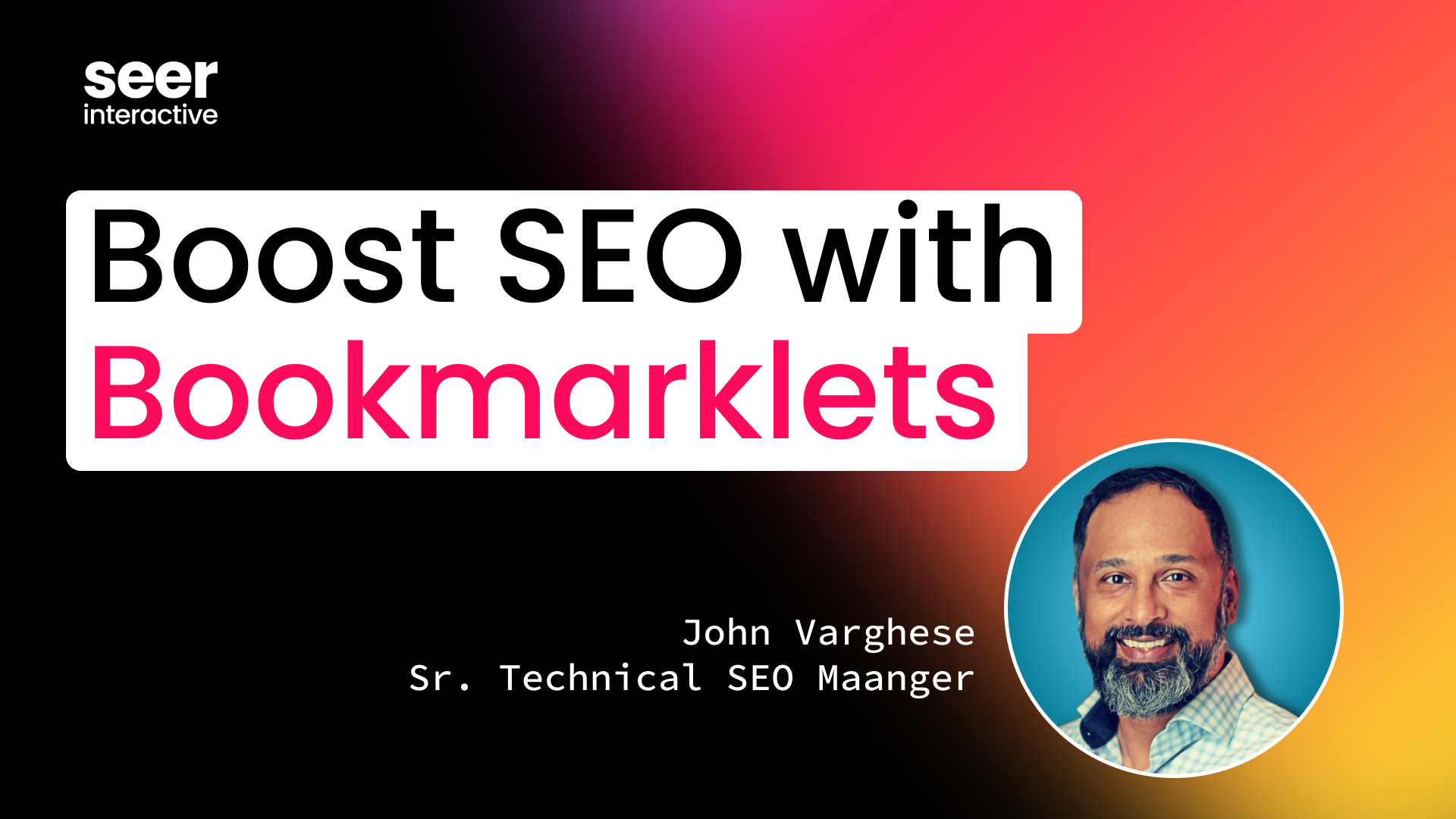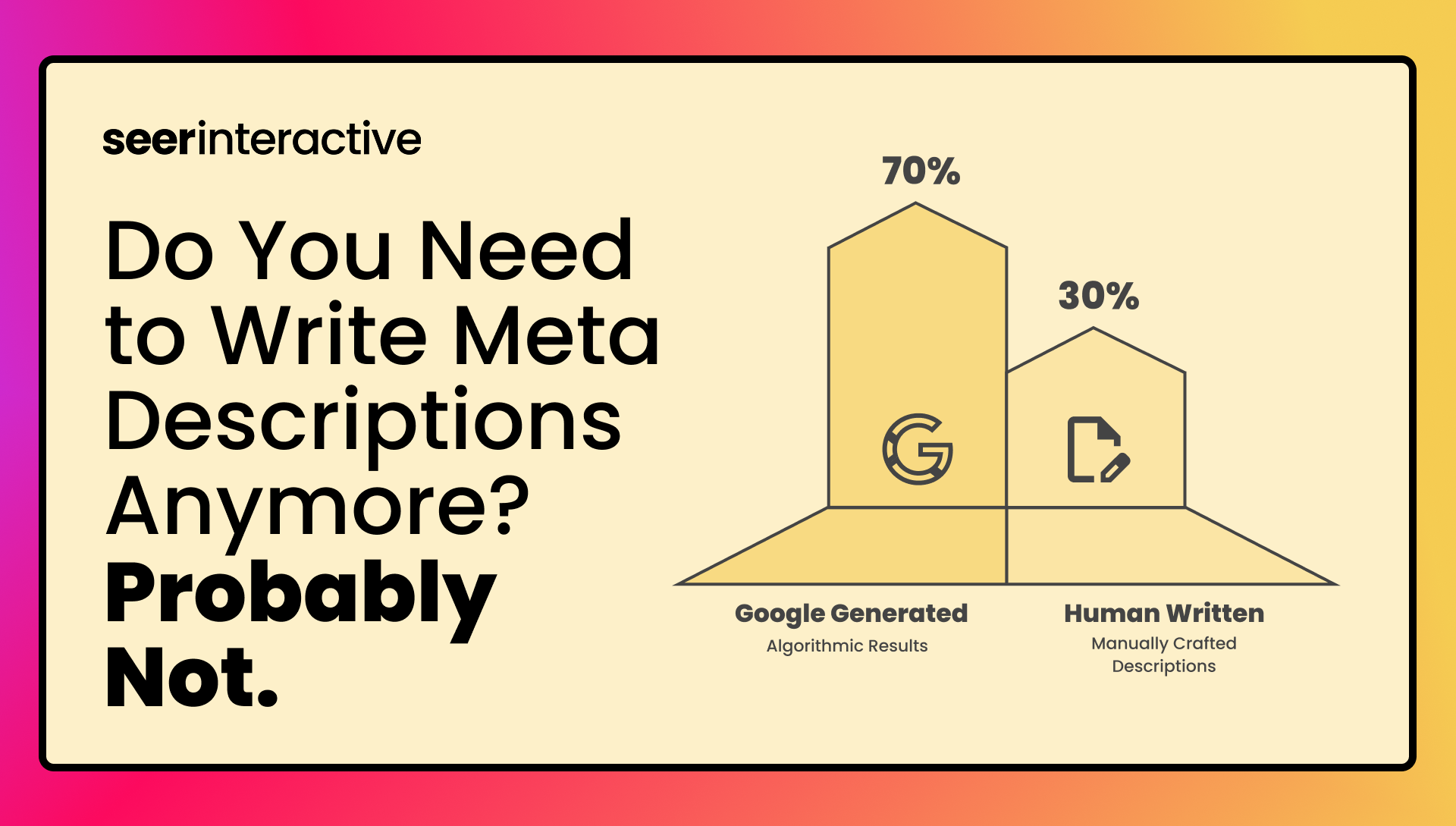Link Building Then and Now: Is It Still Relevant?
In short, yes, link building is still relevant to SEO. However, the days of quantity over quality are long over.
What is link building?
Link building is the process of getting other websites to link to one of your site pages to grow search authority.
Link building has been a part of the SEO conversation for years, but ever since Google’s Penguin update in 2012, this tactic has come under more scrutiny as it has come with more risk associated. Essentially, link building began to become more monitored, so there was a chance that if your business showed signals of trying to monopolize this tactic in a way that negatively affected a user’s search experience, your site could actually be penalized.
As an agency that works with clients across all different stages of digital maturity, we hear a lot of differing opinions and sentiments around link building. Still, as consultants, we’re very open to sharing our unique points of view on the topic. While reputable backlinks are certainly still a part of search engine algorithms, committing the necessary time and resources to this effort to do it right is not recommended for all businesses.
What does Google say about link building?
Within Google’s How Search works guide, Google explains, “...one of several factors we use to help determine this is understanding if other prominent websites link or refer to the content. This has often proven to be a good sign that the information is well-trusted. Aggregated feedback from our Search quality evaluation process is used to further refine how our systems discern the quality of information.”
However, in a recent Google SEO office hours video, a Googler offered that backlinks have less impact as a ranking signal than they used to in the past (via Search Engine Journal). When asked about why Google continues to use backlinks as a ranking factor if link building campaigns are not allowed, the Googler replied, “...spammers or SEOs spending money on links truly have no way of knowing if the money they spent on link building is actually worth it or not, since it’s really likely that they’re just wasting money building all these spammy links and they were already nullified by our systems as soon as we see them.”
John Mueller of Google has even stated that link building is decreasing in importance, explaining that, “...over time, the weight on the links at some point will drop off a little bit as we can figure out a little bit better how the content fits in within the context of the whole web.” This, along with the Penguin update banning spammy link building campaigns, explains why link building campaigns as we’ve known them are a thing of the past.
Are backlinks still important in 2023?
“Let’s move the topic away from link building and towards authority. That’s the conversation businesses should be having.”
- Alisa Scharf, Director of SEO at Seer Interactive

Yes, backlinks are still important in 2023. However, it’s most important to approach link building campaigns as authority-building, rather than solely backlink building. It’s time to think about naturally garnering authority (in the form of backlinks) through generating great content, assets, or spreading the word about your business. Rather than paying link brokers or cold-calling sites for guest posting, create something users find valuable and promote it wisely.
When to Pursue Link Building (and How to Do it Right!)
When should a business pursue link building as part of its online marketing strategy?
While quality backlinks from authoritative sources are still very much a part of the search algorithm, it is just one tiny piece in a massive puzzle of factors that point towards authority. As with all efforts towards SEO growth, link building is not a silver bullet solution towards improving a site’s rank - it’s part of the balance that makes up a site’s various indications of value and trustworthiness to users.
“When people say they want links, they often have a business challenge that isn’t addressed by defaulting to links as the answer.”
- Adam Melson, Associate Director of Business Strategy at Seer Interactive

Consider the myriad of factors that go into determining a site’s level of maturity within search. Seer generally breaks this down into six pillars made up of 25 foundational elements:

When looking at all of these elements, the focus on link building as your most important initiative is not nearly as cut and dry. Google’s evaluation of authority has evolved beyond just links. To remain competitive in today’s search landscape, greater attention should be paid to updating quality content ratings – that is, Expertise, Experience, Authoritativeness, and Trustworthiness.
As marketing budgets get slashed and practitioners are asked to do more with less, it’s essential to your business that you consider the amount of time and resources that it takes to do link building the correct way (i.e. without risk of being penalized) and to assess whether or not it should be weighted most heavily amongst all of these SEO factors. If your content is thin, you don’t provide any signals that provide greater trust in your resources, or your site’s architecture is a mess, then pouring time and money into backlink acquisition will be like putting a bandaid over a bullet hole.
Considering your competition is a good place to start when determining whether or not to devote time to this tactic. Quantity isn’t always the answer - look at your top search competitors and develop a system to analyze the source of their backlinks. Are most coming from spam sites that wouldn’t be worth your time? Are your competitors all getting linked to by a few sources that aren’t pointing to you? Is there a specific piece of content that has more reputable backlinks than others?
Lastly, the size of your business can often be a good indicator of whether or not to commit to link building. Larger brands that are already well-established in their market don’t usually need to spend time in this space.
How to build authority (links) effectively
To build authority, it’s important to keep in mind the fundamental goal of Google: to give users quality content that serves audiences’ needs. Think about authority and trust in the IRL world, outside of Google search. Businesses gain trust by providing quality products and/or services and uniquely serving their customers’ needs. Word of mouth spreads, and brand loyalty skyrockets. Alternatively, a brand creates something unique and gains press through promotion.
These tactics should be the same on search. Instead of buying backlinks or paying sites to post your blog and link back to you, create something valuable and focus on spreading the word about your UVPs.
Once you’ve built a robust backlink profile, it’s important to continue to invest in links that drive revenue. Use analytics to identify referral sources that are converted and then replicate those referral sources. While this isn’t technically link building, it’s digging deeper into lookalike revenue-generating sources and getting the most out of your investment.
Create a valuable asset
If you’re looking to gain authority and backlinks naturally, one way to do so is to build something users will link to as a source or tool. For example, your business might be equipped to perform audience research and surveying to put together an in-depth whitepaper on the trends of your industry. Or maybe your business can create a tool that is valuable to customers, like a bank that creates a savings tool that helps customers plan for purchasing a home and how much they need to save. Create something valuable and do the work of promoting it - if it’s truly great, the backlinks will come naturally.
Promote greatness
If your company has a PR team, be sure to integrate their strategies with SEO. While word of mouth will help your brand outside of cyberspace, an online newspaper linking back to your site will boost your authority. If publications are already posting about your business, it’s worth reaching out to ask if they’ll link back to your site. It’s truly a win-win: linking to your site is the best user experience for a reader to easily learn more about your company, and you’ll gain referral traffic and authority in the eyes of search engines. Even better, if your SEO and PR teams are integrated and working together towards the same goal, you can include the link request in the outreach from the beginning.
Bonus: Identify unlinked mentions
If you’re thinking to yourself, I don’t even have a contact within our PR team yet. What about the publications already out there? It’s worth performing an unlinked mentions campaign to reach out to those press releases, blogs, etc. that are talking about your business but not linking back to you. Use the same thought process mentioned above - it’s a win-win and the best experience for everyone. Don’t forget to consider performing these link building strategies at scale.
Need a Strategy? Seer Can Help
How Seer partners with clients on link building strategies
First and foremost, Seer’s consultative chops can help you determine if link building is a valuable use of time and resources. We may consider questions like, “Will this help build the brand? Will these efforts send relevant traffic for retargeting purposes? Will these efforts send traffic that converts?” - if the answer is a resounding no, we’ll look to other strategies to leverage that ladder up to your goals. If, however, the data dictates that strategic link building opportunities exist for your business, our SEO team will take steps to help you build a scalable approach that makes sense.
Have more questions about link building? Getting mixed signals from different partners or resources? Are you already spending considerable time and money on this tactic without knowing if it’s paying off? Let’s talk! Seer’s consulting could be the fresh take you need for your digital approach.
Want more posts like this? Subscribe to the Seer Newsletter:



